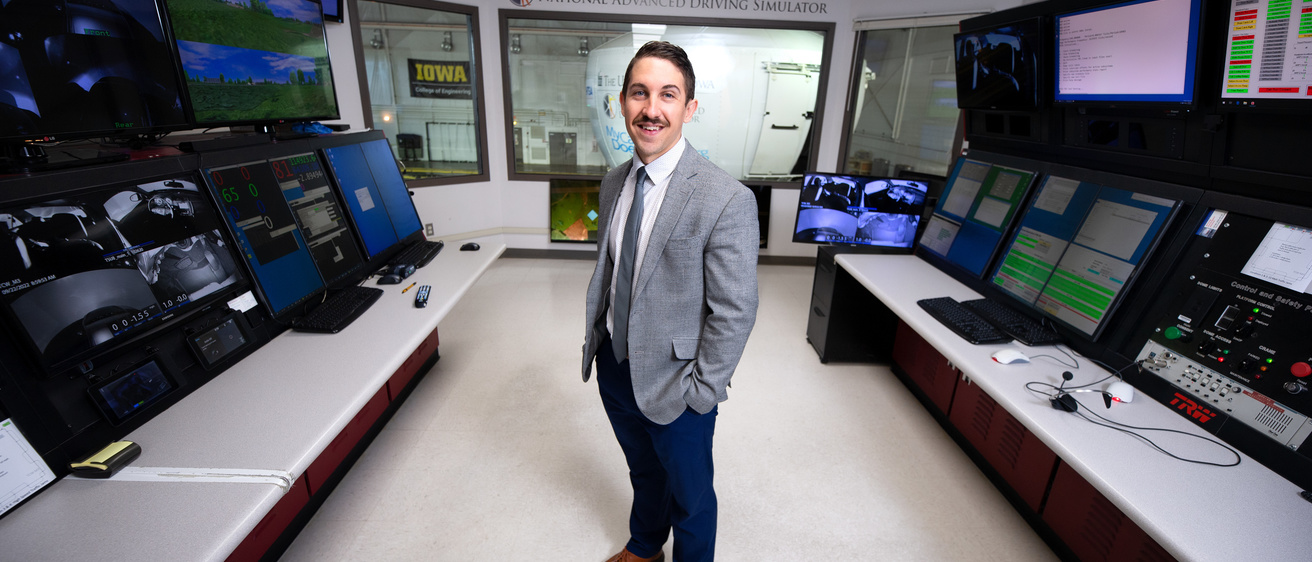We are excited to welcome Justin Mason to our staff at the National Advanced Driving Simulator as an assistant research scientist. Mason received his B.S in Psychology, M.S. in Exercise Physiology, and Ph.D. in Sport & Exercise Psychology from Florida State University. He received his postdoctoral training in Driver Rehabilitation Science at the University of Florida. Prior to joining the University of Iowa, he was a research assistant professor at the University of Florida where he taught Clinical Kinesiology and was the director of the Mobility, Activity, and Participation (MAP) Lab. His research has been supported by the Florida and U.S. DOTs, NIH, and the VA Office of Rural Health. He is originally from St. Paul Minnesota, and outside the lab, he enjoys running, reading, cycling, and disc golf.
Q: What attracted you to the University of Iowa?
A: I chose the University of Iowa’s National Advanced Driving Simulator because of the rigor and way research is conducted. NADS takes a multidisciplinary approach to research while maintaining autonomy. The research coming from the University of Iowa and specifically NADS will make a difference in the long run for road users and drivers. Switching from a professor role to a research scientist will enable me to focus on conducting and disseminating driving research.
Q: What do your areas of research include?
A: For the past eight years, my research has primarily focused on older drivers, how they interact with driving systems, and their fitness to drive, as well as how users in general use automated vehicles. Additionally, I have researched traumatic brain injuries, like concussions, and how these injuries affect an individual’s driving. I enjoy contributing to several lines of research as I believe it diversifies and strengthens my approach. Each discipline focuses on particular portions or approaches to research, and combining multiple approaches in driving research creates a better product for other scientists and for the general public.
Q: What drives the passion behind your research?
A: In short, everyone drives or needs transportation. It is an instrumental activity of daily living that is very important to humans throughout their lifespan. Technology is constantly changing our understanding of driving. There are so many areas of driving that require research. For example, how do we monitor and provide countermeasures in real-time to the driver without distracting them, and how can we support older drivers to maintain their fitness to drive? As you can tell, I am inquisitive and enjoy learning and I love that learning is a vital part of my career.
Q: What are you most looking forward to about working at the National Advanced Driving Simulator?
A: Other than the rigor of multidisciplinary research, I look forward to working with my colleagues and building relationships throughout the University of Iowa. The reputation of the work culture at NADS was part of the reason I chose to come to the university. I look forward to coming to work just to interact with the NADS team. I also look forward to working with different funders and expanding my research focus.
